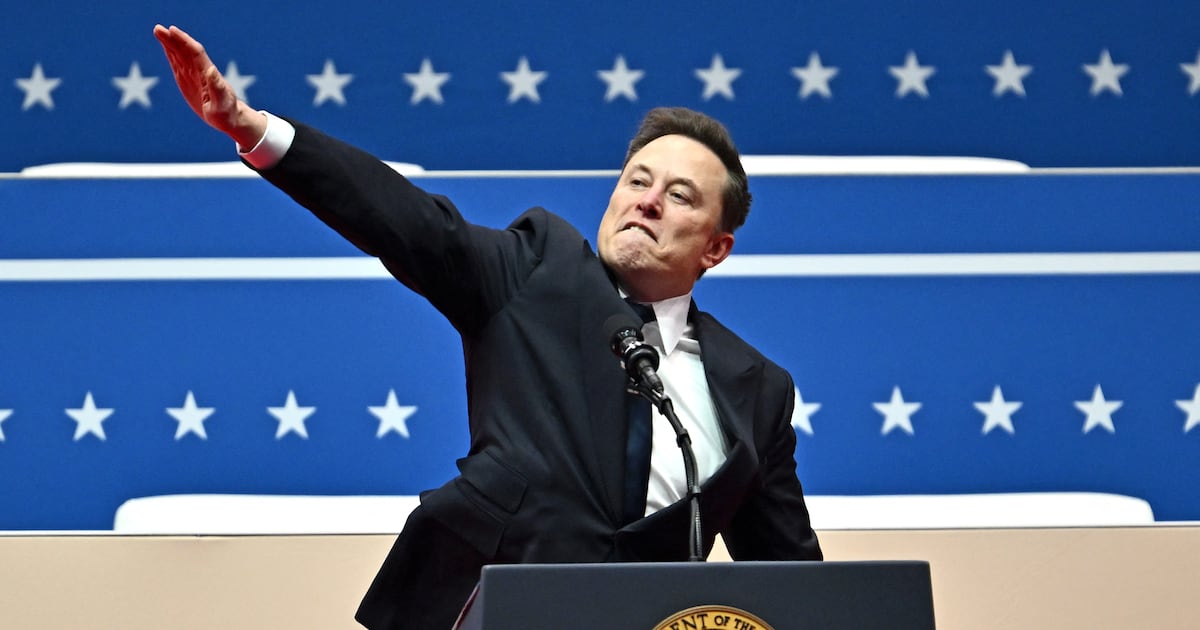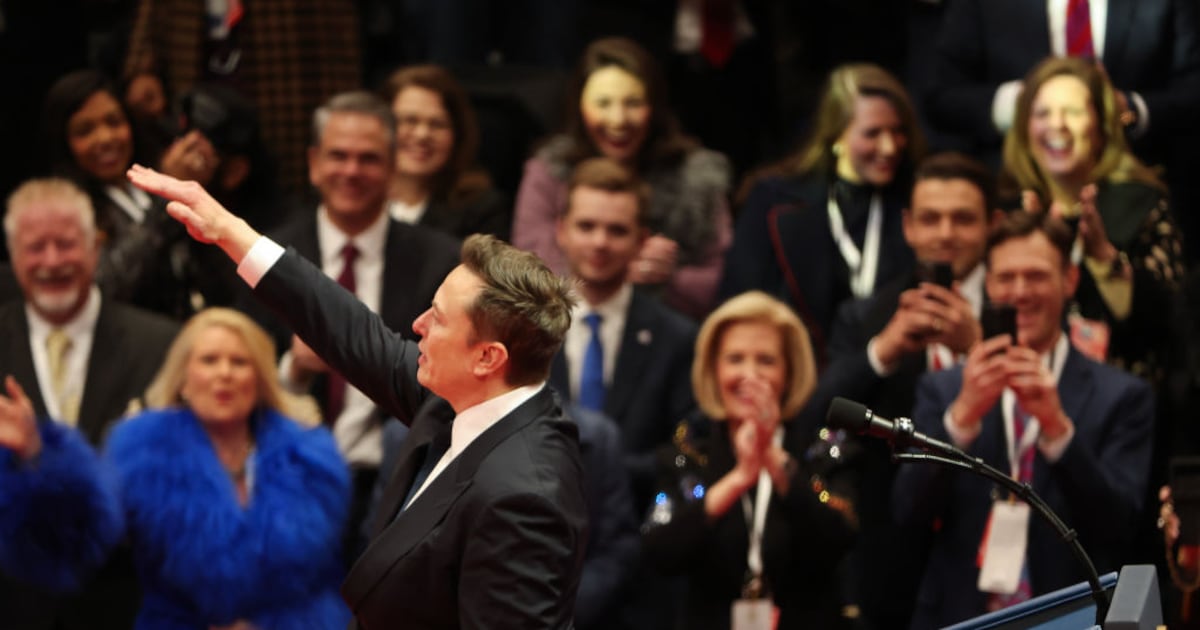“What happened to Gary Cooper? The strong, silent type. That was an American.”
That’s Tony Soprano, in the pilot episode of The Sopranos, assuming the role of cranky middle-aged male, kvetching about “people today,” oblivious not only to the fact that Tony was more of a whining bully than the “strong, silent type,” but that Gary Cooper was an idealization that one could not reach.
Of course, Tony Soprano was an uneducated thug—the same cannot be said for David Brooks.
Brooks, the New York Times columnist and weekly punching bag of the millennials he so desperately wants to help, is out with a new book, The Road to Character.
Brooks is concerned because young people today suffer from a lack of character—we are not reticent enough, struggle to define morality, are self-obsessed, and told too often that we are special. Brooks tries to explain how it used to be different generations back, when the “social code was embodied in the self-effacing style of actors like Gregory Peck or Gary Cooper,” what went wrong, and offer prescriptive advice. By way of illustration, he offers up people from the past with character, including Frances Perkins, Dorothy Day, President Eisenhower, St. Augustine, Johnny Unitas, Bayard Rustin, George Eliot, George Marshall, and Samuel Johnson.
Unfortunately, the book is a muddle of contradictions and misguided nostalgia that rests its flawed premise on a flimsy set of evidence.
Let’s start with what is useful about the arguments in The Road to Character. Brooks believes we should all have a vocation of some sort—a calling larger than ourselves. He wants us to be more aware of our internal battle between the impulse to do “good” and the even stronger impulse to do things that are “sinful.” He wants us all to fall in love, because “it reminds us that we are not even in control of ourselves.” Brooks also wants us to be more humble—to be aware of our inability to fathom the depths of the world’s complexity.
The worthiness of these pursuits is only slightly marred by the cliched language Brooks uses to describe them: “Love is like an invading army,” “Love is a surrender,” “In order to find yourself, you have to lose yourself,” or the Yoda-like “Success leads to the greatest failure, which is pride.”
If Brooks had written a book solely about how to build character, it would have been interesting, but instead he decides, like far too many middle-aged men before him, to say how much worse today’s young people are.
Brooks offers little in the way of evidence for the sweeping, often savage, statements like “Today, community service is sometimes used as a patch to cover over inarticulateness about the inner life.” Or that “many people today … tend to convert moral questions into resource allocation questions … How can I use my beautiful self to help out those less fortunate than I?” Or “[Dorothy Day’s] life rested in very different foundations and pointed in very different directions than the lives of many do-gooders today.”
How arrogant to assume why people are doing community service.
According to Brooks, today’s “meritocracy” is about how “each acquaintance becomes an opportunity to advance your status and professional life project.” In fact, Brooks huffs without much evidence, “things once done in a poetic frame of mind, such as … meeting a potential lover … are now done in a more professional frame of mind.”
Like Brooks, on those points I can only speak from experience to say that I disagree.
The most egregious thing for Brooks is that we live in an age of “greater praise” in which parents are constantly telling their children how amazing they are. Frankly, I used to be sympathetic to this argument, but at this point I read more stories and columns about people complaining about it than I do people actually over-congratulating their children. He’s upset that “in today’s schools, the word ‘honor’ means earning top grades.” Unfortunately, the concept of the honor roll is more than a century old.
Brooks points to polls of high school seniors that ask whether they thought they were important or not, which saw an increase from 1950 to 2005 of 12 percent to 80 percent. In addition, more young people score highly on the narcissism test. “The largest gains,” he notes, “have been in the number of people who agree with the statements ‘I am an extraordinary person’ and ‘I like to look at my body’.” I’m not sure it’s a new thing for teenagers to, um, navel-gaze, so perhaps we’re just a bit more honest?
Even more laughable is that a sign of the end times is that middle-school girls were asked in 2005 who they would most want to have dinner with, and “Jennifer Lopez came in first, Jesus Christ came in second, and Paris Hilton third.”
Brooks is annoyed that “movies from Pixar and Disney are constantly telling children how wonderful they are.” He lectures that “as I looked around the popular culture I kept finding the same messages everywhere: You are special. Trust yourself. Be true to yourself.” He must be living in a very different time than I do, as the most popular television shows in the country for the past few years, The Good Wife, Game of Thrones, Breaking Bad, Orange is the New Black, and Homeland, among others, are specifically about coming to terms with our own innate capability to do horrible things, and go out of their way not to idealize or flatter children, teens, or young adults.
“Example is the best teacher,” writes Brooks, and the majority of the book details the lives of people representative of the character-driven life. Brooks acknowledges “none of them is even close to perfect” but claims “they practiced a mode of living that is less common now.” Even with that hedge, the selection is puzzling. While Brooks has a lot of negative things to say about modern parenting and love, nearly every single person selected was a lousy parent or spouse. Frances Perkins was a cold wife and mother. Eisenhower had a terrifying temper, his children said they did not know him at all, and even Brooks admits that Ike’s “behavior toward his mistress, Kay Summersby, was repellent.” Dorothy Day’s “family was estranged from her.” Bayard Rustin could not stop getting caught performing oral sex on other men. George Eliot was “intolerable.” St. Augustine called “his fifteen-year relationship with his lower-class common-law wife ‘a mere bargain of lustful love’.” Samuel Johnson, who was blind in one eye, was once offered help by a teacher and “he became enraged and furiously beat her away.” Even later in life, when Johnson thought an editor was wasting his time, he knocked the man down and “put his foot on his neck. ‘He was insolent and I beat him, and he was a blockhead and I told of it’.”
Let’s accept for a minute the premise that these individuals are worthy of contemplation for the purpose of building character. The problem with this is that their very singularity derived from their actions that ran counter to the behavior of the general population. Frances Perkins stands out because, unlike other genteel women, she was willing to get her hands dirty for her passion. George Marshall was not a preening, attention-seeking military genius. Rustin lived life as an open, sexually active homosexual. Augustine disagreed with his contemporaries about how to build a relationship with God—and so did Day. Eliot’s love affair led people to call her “a husband stealer, a homewrecker, and a sex maniac,” and she was forced to flee England.
If their very notability stems from how much they stood out and strove on in the face of public assault, how is it that the general population from those eras were by and large better at issues of humility, morality, reticence, honor, and so forth?
Which brings us to one of the thornier problems afflicting Brooks’s book—its raft of contradictions.
After reading The Road to Character, one could be forgiven for being confused as to what, exactly, Brooks wants from young people.
He is mad because we’re told to “follow your passion. Don’t accept limits. Chart your own course. You have a responsibility to do great things because you are so great.” He singles out Anna Quindlen for telling people to “honor your character, your intellect, your inclinations, and, yes, your soul.” He yearns for the day when “there was stronger social sanction against … blowing your own trumpet, getting above yourself, being too big for your britches.” He doesn’t like our resume-padding, that we live for career achievements.
The book is a giant distinction without a difference. Brooks lauds Frances Perkins because she “wanted some sort of heroic life” and on the same page trashes the current generation for asking, “How can I serve the greatest number? How can I have an impact?” Johnson arrived at Oxford “burning with ambition, panting, as [he] would later put it, for a name and the ‘pleasing hope of endless fame’.” While Joel Osteen is generally fair game in my book, even I am confused as to why him telling people, “You were made to leave a mark on this generation” is so horrifying to Brooks and yet Perkins and Johnson displaying that desire is not.
We shouldn’t live by a logic that runs along the lines of “effort leads to reward. Practice makes perfect.” But when it came to Eisenhower, his “code” was worthy because it saw that “a personality is a product of cultivation. The true self, in this view, is what you have built from your nature, not just what your nature started out with.” Same for George Marshall, as “his rise in the ranks of life would not come from his natural talent. It would come from grinding, the dogged plod, and self-discipline.” Just a few chapters later, Brooks sputters that “character” has lost its meaning, and one of the unfortunate ways it is used today is with “self-control.”
Whereas before Brooks was unhappy so many young people spend time thinking about themselves and thinking of the world as it relates solely to themselves, he also wants us to suffer because “the first big thing suffering does is drag you deeper into yourself.”
He detests how young people want to overshare publicly, yet hails Dorothy Day for how “she practiced a sort of public confession.” Teens writing confessions about the hardships of adolescence—you’re vain good-for-nothings! Dorothy Day on her various love affairs and abortions—hoorah!
Nowadays, our self-centeredness means we are “painfully sensitive to any snub or insult to the status we believe we have earned for ourselves.” Except when it came to George Marshall, Brooks calls it “modest” when Marshall is motivated to achieve in life because his brother “thought I would disgrace the family name” and that it’s great to “set out to prove the bastards wrong.” So much for internal self-reliance and respect.
Brooks groans that “today, when we describe someone as ‘public-spirited,’ we tend to mean someone who gathers petitions, marches and protests, and makes his voice heard for the public good.” In the following chapter he commends A. Philip Randolph and Bayard Rustin for their agitation, marches, and protests. In fact, while explaining how nonviolence fits into this character ethic, Brooks actually writes that nonviolence “allowed them to stage relentless protests, marches, sit-ins, and other actions that would force their opponents to do things against their own will.”
Somehow partway through the book, Brooks decides that raw intelligence is enough for the kind of introspection that builds character. “She was too intelligent,” writes Brooks about George Eliot, “not to be able to observe herself accurately.” This is the same Eliot that Brooks notes could never be told “anything that other people say about her books, for good or evil,” so her husband had to cut out mentions of her in the paper before she read it. So much for that inner self-respect thing, or that the people he holds in esteem are “not dependent on positive reinforcement.”
He points early in the book to the World War II victory broadcast Command Performance in which Americans are humble victors and “their collective impulse was to warn themselves against pride and self-glorification.” By the time he gets to his Conclusion, “it was the Greatest Generation that abandoned realism. By the fall of 1945, people around the world had endured sixteen years of deprivation—first during the Depression, then during the war. They were ready to let loose, to relax, to enjoy.”
Which brings us to another big problem with the book, and with its premise in general—misguided nostalgia.
If prostitution is the world’s oldest profession, then middle-aged men complaining about “young people today” is the world’s oldest pastime. Brooks does, mercifully, concede that the past “was a more racist, sexist, and anti-Semitic culture.” However, he claims “there was perhaps a strain of humility that was more common then than now.” Perhaps he should go back and re-watch the Teddy Roosevelt section of The Roosevelts.
Brooks thinks the current success of self-help books is a sign of our venality, and yet the genre is ancient, from Baldassare Castiglione to Ovid to savoir vivre books to Samuel Smiles’s eponymous 1859 Self-Help. By 1913, “self-help” was a genre big enough to goad G.K. Chesterton into railing against Smiles and all his imitators: “What was the matter with Self-Help as understood by the unfortunate Smiles was simply that it ignored by implication the idea of tradition and even of right.” Sound familiar?
Brooks claims that in the late 1800s, New England “Yankees were … egalitarian.” That might come as a surprise to anybody either applying to or attending a New England boarding school at that time.
For Brooks, it was a sign of character that Marshall did not report his schoolmates for a hazing ritual in which a new student at VMI was “forced to squat over a naked bayonet that had been jammed into a hole in the floor.” Marshall was lucky to fall to one side when he collapsed, thus only wounding his cheek—but did not report it, and as a result “he was in.” Sounds like a much better era, and I’m sure if a fraternity today was caught doing such a thing, Brooks would be as equally blasé.
He points to the contrast between Johnny Unitas and Joe Namath (hard worker versus flashy) as a watershed moment in how modern society shifted. Except any child could point to Aesop’s The Tortoise and the Hare as an example of how far that is from a new concern.
The most offensive form his nostalgia takes, however, is when he talks about love. Brooks seems to think there is a problem today wherein we “fall in love with the person who might be of most use to you” and frets “there just isn’t time to get carried away by love and passion.”
Love, he contends, is one of the more powerful forces that take somebody from the calculating, utilitarian mindset to the character-infused one. Except, I find it hard to believe he thinks any time in modern history has been better for people to fall in love than today? Gays and lesbians can do so without fear of recrimination. So can people of different races, religions., and socioeconomic backgrounds. Arranged marriages aren’t really en vogue. Marriages aren’t about political alliances between ruling families, and a pregnancy doesn’t necessarily mean one has to give up on love.
Reading Brooks’s writing about all the hardship, toil, and sacrifice that made past generations so great is a bit akin to one of J.K Simmons’s tirades in Whiplash about how being abusive makes great drummers.
What is especially tough to swallow is how Brooks judges contemporary society as it is maturing, but uses hindsight to judge the past after its individuals have had the time to overcome their flaws. Every single person he cites once had the traits he finds deplorable in young people today—vanity, pride, no self-control, and so on. But they are judged not on their early failings but how as adults they overcame them. In fact, the lack of optimism in the book, whether about today’s youth or as a component of character, is startling but telling.
What was better about life in any of the time periods Brooks writes about versus now because of this supposed character-building? Yes, Brooks didn’t have to see athletes doing end-zone dances. There weren’t Park Slope mommy blogs. However, we can easily list what was worse about those time periods as a result of societal obsession with sin, reticence, living in obedience to a higher institution or way of life, respect, and not “getting above yourself.” Overcoming history’s sins of racism, sexism, and classism, among others, was just that much more difficult. More damning is Brooks’ own writing, when he notes that “popular culture seemed more reticent” back in the day. That is the key word—seemed. When it comes to the person he wants us to be, his examples prove only one thing: His vision of a society filled with character-oriented people never existed.
The entire book might as well be David Brooks telling us how when he was a kid he had to ride his bicycle 10 miles to school—uphill both ways.





